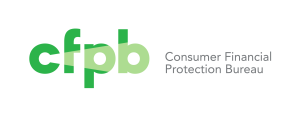 Published by the Consumer Financial Protection Bureau
Published by the Consumer Financial Protection Bureau
WASHINGTON, D.C. — Today the Consumer Financial Protection Bureau (CFPB) issued a report that found that attempts by online lenders to debit payments from a consumer’s checking account add a steep, hidden cost to online payday loans. Half of online borrowers rack up an average of $185 in bank penalties because at least one debit attempt overdrafts or fails. And one third of those borrowers who get hit with a bank penalty wind up having their account closed involuntarily. The study also found that despite this high cost to consumers, lenders’ repeated debit attempts typically fail to collect payments.
“Taking out an online payday loan can result in collateral damage to a consumer’s bank account,” said CFPB Director Richard Cordray. “Bank penalty fees and account closures are a significant and hidden cost to these products. We are carefully considering this information as we continue to prepare new regulations in this market.”
The report is at: http://files.consumerfinance.gov/f/201604_cfpb_online-payday-loan-payments.pdf
Payday loans are typically marketed as a way to bridge a cash flow shortage between paychecks or other income. Also known as “cash advances” or “check loans,” they are usually high-cost loans that can offer quick access to money. Payment is usually due in full on the borrower’s next payday, although some lenders offer installment loans or longer-term loans with payments typically timed to coincide with the consumer’s next payday.
Today’s report is based on data from an 18-month period in 2011 and 2012 that looked at online payday and certain online installment loans made by more than 330 lenders. It is a continuation of the CFPB’s reports on payday loans and deposit advance products, some of the most comprehensive studies ever undertaken on the market. Previous reports have raised questions about the lending standards and loan structures that may contribute to the sustained use of these products.
Today’s report examines the ways that online lenders attempt to recover their money by debiting a consumer’s checking account. Online lenders often use an automated network to deposit the loan proceeds into borrowers’ checking accounts. They collect money by submitting a payment request to the borrower’s depository institution through the same system. Borrowers facing financial difficulties are often hit by multiple, costly debit attempts. If a debit attempt fails, lenders often follow up with repeated attempts against a consumer’s account. Many lenders also split a single payment into multiple smaller debits in the hopes that the consumer’s account will contain enough money to fulfill one of the attempts. They can do this, for example, by submitting three $100 requests on a day the borrower is due to pay $300.
When an account lacks sufficient funds, the bank or credit union may fulfill the debit and charge the consumer an overdraft fee or the debit attempt could fail and the bank or credit union will reject the payment request and charge a non-sufficient funds fee. The typical fee for both overdraft and non-sufficient funds was $34 in 2012. If the debit attempt is rejected, the lender may also charge the borrower a late fee, a returned payment fee, or both. Negative account balances are a significant contributor to involuntary account closures at many banks and credit unions.
Today’s study found that bank penalty fees and account closures are a significant, hidden cost of online payday and payday installment loans. The study further found that some lenders repeatedly submit payment requests to consumer accounts even though debit attempts typically do not generate more income. Specifically, the report found:
- Half of online borrowers are charged an average of $185 in bank penalties: One half of online borrowers have at least one debit attempt that overdrafts or fails. These borrowers incur an average of $185 in bank penalty fees, in addition to any fees the lender might charge for failed debit attempts.
- One third of online borrowers hit with a bank penalty wind up losing their account: A bank account may be closed by the depository institution for reasons such as having a negative balance for an extended period of time or racking up too many penalty fees. Over the 18-month period covered by the data, 36 percent of accounts with a failed debit attempt from an online lender ended up being closed by the depository institution. This happened usually within 90 days of the first non-sufficient funds transaction.
- Repeated debit attempts typically fail to collect money from the consumer: After a failed debit attempt, three quarters of the time online lenders will make an additional attempt. Seventy percent of second payment requests to the same consumer’s account fail. Seventy-three percent of third payment requests fail. And, each repeated attempt after that is even less likely to succeed.
Today’s report will help educate regulators and the public about how the payday and installment lending markets work and about the behavior of borrowers in the market. The CFPB has authority over the payday loan and payday installment loan markets. It began its supervision of payday lenders in January 2012. In November 2013, the CFPB began accepting complaints from borrowers encountering problems with payday loans. Last month, it began accepting complaints about online marketplace lenders.
Last year the Bureau announced it was considering a proposal that would prohibit payday lenders and similar lenders from making more than two unsuccessful attempts in succession on a borrower’s checking or savings account. The Bureau is expecting to issue a proposed rule later this spring.




